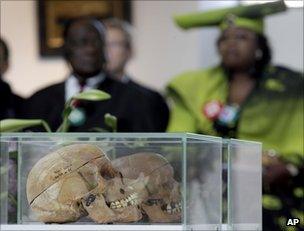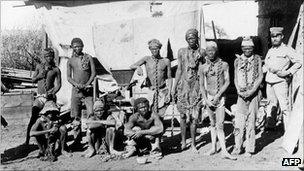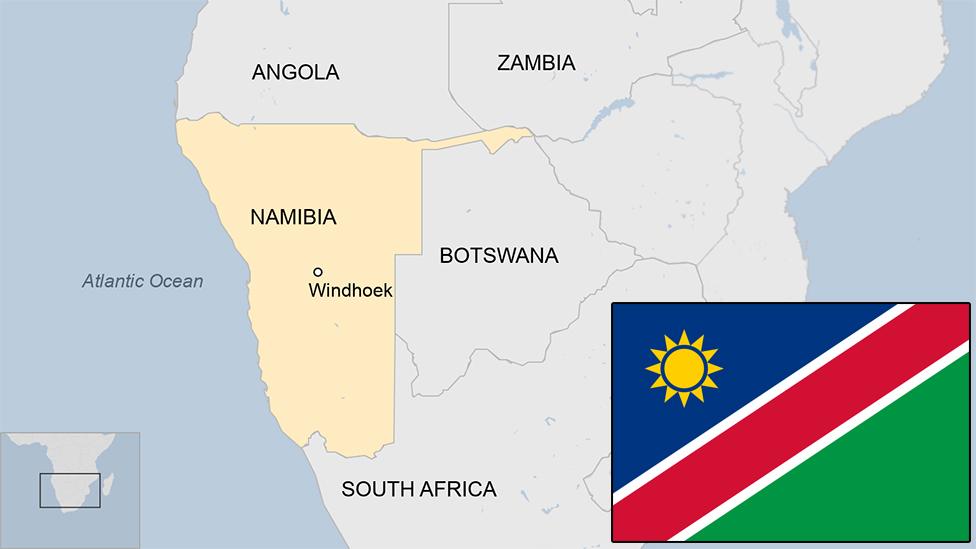Germany returns Namibian skulls taken in colonial era
- Published

The Namibian delegation attended a service in Berlin
Namibian tribal leaders have visited Berlin to collect the skulls of 20 compatriots who died under Germany's colonial rule in the early 1900s.
German scientists took the heads to perform experiments seeking to prove the racial superiority of white Europeans over black Africans.
The skulls were uncovered three years ago in medical archive exhibits.
A ceremony was held in the German capital to return the remains as a gesture of reconciliation.
But chaotic scenes accompanied the speeches, particularly an address by German Deputy Foreign Minister Cornelia Pieper.
A handful of demonstrators shouted "reparations", "apology" and "genocide".
Germany has consistently refused to pay reparations to its former colony, arguing that it has given much development aid to Namibia. But Namibians at the ceremony said the aid had not reached them.
Earlier, Ueriuka Festus Tjikuua, a member of the Namibian delegation, told reporters: "We have come first and foremost to receive the mortal human remains of our forefathers and mothers and to return them to the land of their ancestors."
The skulls belong to 20 people who died after an uprising against their German colonial rulers more than 100 years ago.
They were among hundreds who starved to death after being rounded up in camps.
Some of the dead had their heads removed and of these, about 300 were taken to Germany, arriving between 1909 and 1914.
The skulls gathered dust in German archives until three years ago when a German reporter uncovered them at the Medical History Museum of the Charite hospital in Berlin, and at Freiburg University in the south-west.
German researchers believe the skulls belong to 11 people from the Nama ethnic group and nine from the Herero.
They were four women, 15 men and a boy.
'Nazi forerunner'
Mr Tjikuua said the mission intended to "extend a hand of friendship" to Germans.
Namibians, he said, wished to encourage a dialogue "with the full participation and involvement of the representatives of the descendants of those that suffered heavily under dreadful and atrocious German colonial rule".

The conflict dates back nearly a century
Charite spokeswoman Claudia Peter said the purported research on the skulls performed by German scientists had been rooted in perverse racial theories that later planted the seeds for the Nazis' genocidal ideology.
"They thought that they could prove that certain peoples were worth less than they were," she told AFP news agency.
"What these anthropologists did to these people was wrong and their descendants are still suffering for it."
- Published10 December 2024
